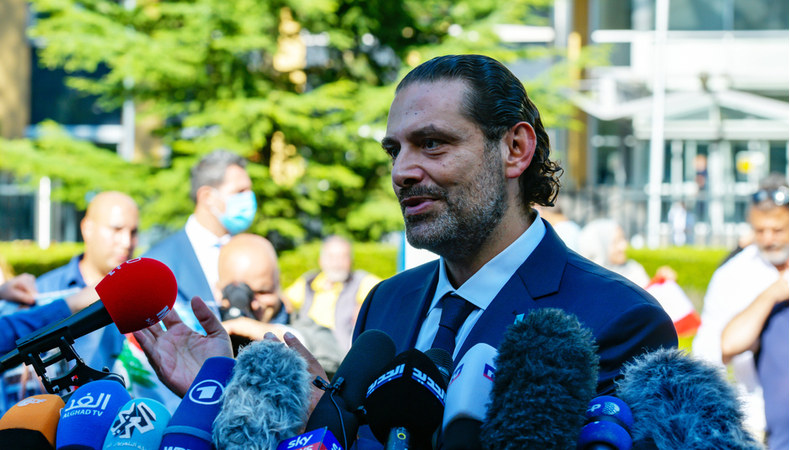Lebanon hasn’t had a government for 253 days

It has been 253 days since Saad Hariri was commissioned to form a new executive to replace the one led by Hassane Diab. It was October 22nd. He had resigned on August 10th, “hit” by the shock wave of the tremendous explosion that had destroyed the port of Beirut a few days earlier and with it half the Lebanese capital, causing over two hundred deaths and six thousand injuries.
Before Hariri, the task of forming a government “in harmony and productive” had been entrusted to Ambassador Mustafa Adib. But, unfortunately, he had to throw in the towel within a month, besieged by the “wishes” of the country’s various political factions. The so-called “French initiative” launched by President Emmanuel Macron during his visit to Beirut thus quickly ran aground in the Lebanese quicksand. This initiative envisaged the formation of a small “cabinet of specialists” and, for six months, the time necessary to introduce those urgent economic reforms capable of channelling indispensable international aid to Lebanon.
Instead, six months already passed, and another six are about to end, and there is no shadow of the coveted government. The list of protests and obstacles posed by the various political forces in this period is very long, first because the government of the technicians will be led by a political leader at the head of a parliamentary bloc. Then on the nature of future independent ministers: whether they will be completely non-partisan technicians or “suggested” by the parties. Then again on the number of ministers: 14, 18 or 24. And finally, on Hariri’s refusal to consult with the parties, knowing that their trust will be decisive in Parliament.
Read | Lebanon floats in a stormy ocean
Indeed, the alchemy between the President of the Republic and the prime minister in charge has long been lacking. Michel Aoun points out that his prerogatives as President are not limited to “signing him” to the list of ministers but give him the right to reject the proposed names. In particular, Aoun insists on having a say in the choice of Christian ministers. Hariri, for his part, complains of disrespectful treatment towards him and undue interference by Aoun in his prerogatives with the just hidden objective of ensuring several ministers (one third plus one) capable of conferring on him the right of veto.
Meanwhile, the country is sinking further and further into the abyss. Against the background of this seemingly internal tug-of-war, however, another is looming: the one that sees US-Iran negotiations in Vienna. That is how regional strategic considerations fit into the political calculations, with Tehran betting on an upcoming agreement with Washington, including on the Lebanese dossier. Therefore, many Lebanese fear seeing their country end, as during the 1990 Gulf War, as a “consolation prize” for the guardian on duty.
Aware of the failure of its initiative, France has decided to turn to Europe, but Brussels too hesitates, waving – as, during the recent visit to Beirut by Josep Borrell, head of European diplomacy – the stick of sanctions against those Lebanese politicians considered corrupt or obstructionists in the government crisis. Without ever going that far. Europe’s concern seems to be solely to prevent the demonstrations against the economic crisis from leading to such general chaos to push the Syrian refugees present in Lebanon (about 1.5 million) to the European coasts. So,Peter’s successor becomes the last – disinterested – lifeline for the country message.




